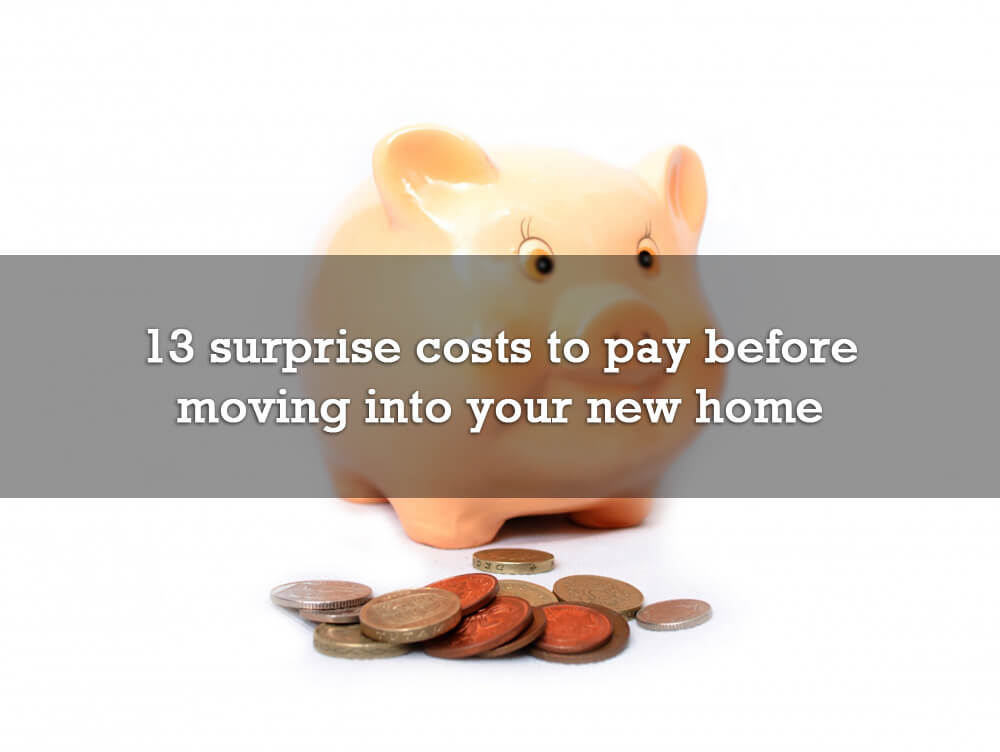So, you think you’re financially ready to own a home? While you may have calculated what money you have available to make your monthly payments, did you account for everything you’ll have to pay for up front?
Don’t make home buying an impulse purchase. Plan ahead to cover the many up‐front costs of buying a home. Here are 13 you need to be aware of:
1. Mortgage insurance application fee and premium
If you have a high-ratio mortgage (less than 25% down payment), you may need mortgage loan insurance, which may require an application fee. Your lender may add the mortgage insurance premium to your mortgage or ask you to pay it in full upon closing.
2. Appraisal fee
Your mortgage lender may require the property be appraised at your expense. An appraisal is an estimate of the value of the home. The cost is usually between $250 and $350 and must be paid appraiser when the home is appraised.
3. Deposit
This is part of your down payment and must be paid when you make an offer to purchase. The cost varies depending on the area, but it may be up to 5% of the purchase price.
4. Down payment
At least 5% of the purchase price is usually required for a high-ratio mortgage, and at least 25% of the purchase price is usually required for a conventional mortgage.
5. Estoppel certificate fee
This applies if you are buying a condominium or strata unit and could cost up to $100. (Not applicable in Quebec.)
6. Home inspection fee
Remember that this may be a condition of your offer to purchase. A home inspection reports on the condition of the home and may cost over $200, depending on the complexities of the inspection. For example, it may be more costly to inspect a home that has large square footage, one that is expensive, or one where contaminants such as pyrite, radon gas, or urea-formaldehyde are suspected.
7. Land registration fees
You may have to pay this provincial or municipal charge upon closing in some provinces. Sometimes called a land transfer tax, deed registration fee, tariff, or property purchases tax, it’s a percentage of the property’s purchase price. Check with your lawyer/notary to see what the current rates are.
8. Prepaid property taxes or utilities
To reimburse the vendor for pre‐paid costs such as property taxes, filling the oil tank, etc.
9. Property insurance
The mortgage lender requires this because the home is security for the mortgage. This insurance covers the cost of replacing the structure of your home and its contents. Property insurance must be in place on closing day.
10. Survey or certificate of location cost
The mortgage lender may ask for an up-to-date survey or certificate of location prior to finalizing the mortgage loan. If the seller doesn’t have one or doesn’t agree to get one, you’ll have to pay for it yourself. It can cost in the $1,000 to $2,000 range.
11. Water quality inspection
If the home has a well, test the water quality to ensure that the supply is adequate and the water is potable. You can negotiate these costs with the vendor and list them in your offer to purchase.
12. Legal fees and disbursements
Must be paid upon closing and cost a minimum of $500 (plus GST/HST). Your lawyer/notary will also bill you direct costs to check on the legal status of your property.
13. Title insurance
Your lender or lawyer/notary may suggest title insurance to cover loss caused by defects of title to the property.
There’s a lot to buying a house than being able to afford the mortgage payment. But don’t let all this intimidate you. Contact us today, and we can help you determine which ones apply to you and what options are available to make them affordable.

